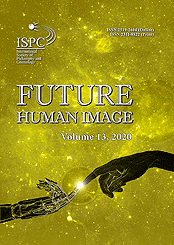Concept of an “Ideal Europe” in the Philosophical Discourse during World War I (1914-1918): British Rationalism versus German “Individualism”
Concept of an “Ideal Europe” in the Philosophical Discourse during World War I (1914-1918): British Rationalism versus German “Individualism”
Author(s): Sergiy Stelmakh, Sabina KotovaSubject(s): History of ideas, Contemporary Philosophy, Pre-WW I & WW I (1900 -1919)
Published by: Международное философско-космологическое общество
Keywords: World War I (1914-1918);rationalism;idealism;individualism;“idea of freedom”;“ideal Europe”; “Germanism”;
Summary/Abstract: The article addresses the issues of involvement of UK and German philosophers in the “war of cultures” during World War I (1914-1918). Over the course of the war, humanities scholars used opinion-based journalism to formulate certain views and opinions, boost the morale of the army and the public, and call readers to action. Philosophy was one of the ideological battlegrounds, which meant an antagonism between English rationalism and German individualism. The authors analyze the conceptual principles of the German “idea of freedom,” “Germanism” (“Deutschtums”), and their criticism by British philosophers. The article sheds light on the idea of an “ideal Europe” put forward by German thinkers as a worldview construct designed to overcome the European cultural crisis.
Journal: Future Human Image
- Issue Year: 2020
- Issue No: 13
- Page Range: 94-101
- Page Count: 8
- Language: English

